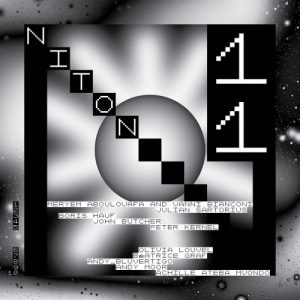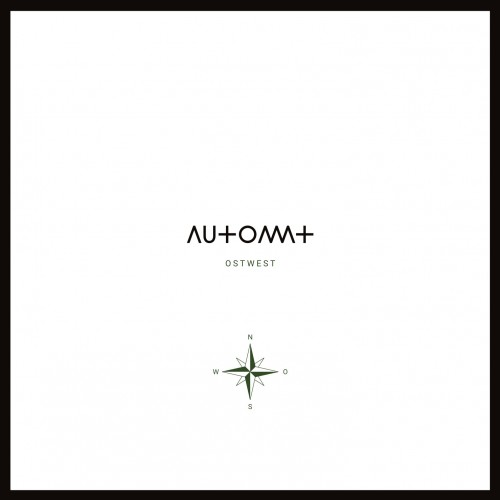 Exploratory Italian-Swiss trio Niton are celebrating ten years as a recording entity and for that milestone, they have chosen to release a fully collaborative album, selecting eleven fellow travellers and musical adventurers.
Exploratory Italian-Swiss trio Niton are celebrating ten years as a recording entity and for that milestone, they have chosen to release a fully collaborative album, selecting eleven fellow travellers and musical adventurers.
Considering that Niton’s line-up consists of electric cello, synths and amplified objects, their sparse soundscapes leave plenty of space to accommodate poetry, percussion, saxophone, guitar and more and the guests range from solo performers to bands and hail from all parts of the globe. This truly is the most expansive and inclusive album and one that ranges like a giant across all styles and emotions.
The opener describes their soundworld really well, as ghostly backwards cello curls around the vocals of Meryem Aboulouafa and Vanni Banconi. Their voices stutter and vanish like a misreeled film track, a half-shadow world with wisps of sound suspended. You can sense the proximity and feel enclosed within the sound, ethereal and intimate.
The random sparks of sound that are generated by Luca Xelius Martegani and El Toxyque are scattered throughout the album, threading through Julian Sartorius‘s disparate percussive elements on the unstructured yet cohesive “Spin-orbit Interjection” or the despairing clarinet-soaked “Lampo” in which Boris Hauf lends extra percussive texture to generate a late-night Eastern sensation.John Butcher‘s sax is more immediate on “I Was Dying” but spirals through the dial of an untuned radio. Sounds revolve and disappear, and this effect is quite common throughout the album; you find yourself attaching to a sound, only for it to gradually diminish and for something else to take its place. For a marked change of pace, the Swiss-Canadian band Peter Kernel bring the motorik rhythm and Niton weave their magic through the incessant momentum. It is kinetic and hypnotic, and shares its euphoric build with Godspeed, but the electronic textures give it another layer.
The invention and reinvention on the album is impressive and you realise that there is no particular Niton sound; it is more of an idea and one that is open to change at any moment, moving with the tide of collaborators and the mood in the studio. You wouldn’t think one album could contain so many ideas, but each track offers up fresh perspectives with contrasting results. Olivia Louvel‘s spoken word “Letter From Niton” is a drifting delight, everything moving in waves as if reacting with the very air, while percussionist Béatrice Graf brings some really odd sounds, distorted and distended into a manic tribal rumble with clockwork electric feedback. The languid sax of andy_bluvertigo unfurls with supple melody against a chilled Niton backdrop, whereas Andy Moor‘s guitar is part of a scufflling explosion of sounds, all sharp edges and bruised frustration. It moves uncomfortably, sniping, unsettled and abstract as if the surface is burning.It takes something special to finish off an album like this, but the combination of Cameroonian shaman Achille Ateba Mvondo‘s interweaving with the field recordings of another shaman’s guttural chants is quite a sweep. The disparity between the vocals, the wealth of traditions stitched into electronic textures turn it into some strange spiritual lullaby, its vocal melody coda being a lovely thing on which to end such a far-reaching exploration of themes and ideas.
11 certainly requires many listens, but is is ultimately rewarding. How they follow this, I have no idea; but it must be a career high.-Mr Olivetti-


